Ongoing Projects
Always - On Cancer screening projects in local communities
In alignment with the World Health Organization’s global strategy to eliminate cervical cancer, the Elekta Foundation builds its operations on population-based screening—a proactive public health approach that systematically invites all eligible individuals within a defined population to participate in screening programs. This method ensures equitable access and maximizes early detection across entire communities.
Our work is structured district by district, with each area managed as a dedicated project. Within each project, the Elekta Foundation deploys a specialized team consisting of a gynecologist, a patient navigator, and a data manager. This team collaborates closely with local and national health professionals to strengthen capacity and ensure high-quality service delivery.
Within our Program for Integrated Women’s Cancer Care, the Elekta Foundation conducts dual screening, simultaneously screening for cervical and breast cancer. This approach targets the two most common cancers affecting women in low-resource settings, enabling more efficient use of health resources and improving access to early detection and care.
Our journey towards impact
Our current efforts are centered in Rwanda, where we are scaling up program. To date, we’ve conducted screenings in seven districts, including Karongi, Kayonza, Rubavu, Nyabihu, Gicumbi, Bugesera, and Kicukiro. Regardless of the district, we always rely on our well-adapted FAST model to guide every stage of our programs, from awareness and screening to diagnosis and treatment. Read more about this below.
Our FAST-model includes:
F = Fast HPV testing
A = Affordable cost per woman
S = Systematic tracking
T = Timely diagnosis and Treatment
Our Added Value:
- Public Private Partnerships
- Qualitative care
- High throughput
- Digital solutions
Kirehe and Ngoma districts
HPV screening for women aged 30 to 49 is currently underway in two districts in the southwest region of Rwanda. This 12-week intensive screening campaign is preceded by thorough preparations, including comprehensive training for Community Health Workers, nurses, and midwives.
This initiative is part of our ongoing commitment to expanding access to early detection services and preventive cancer treatment. It represents a critical step toward achieving Mission2027, Rwanda’s ambitious goal to eliminate cervical cancer by the year 2027, three years ahead of the World Health Organization’s global target.
Women who are tested for the HPV virus, which causes cervical cancer in 99% of cases, also undergo a breast cancer examination, a CBE, during the same visit.
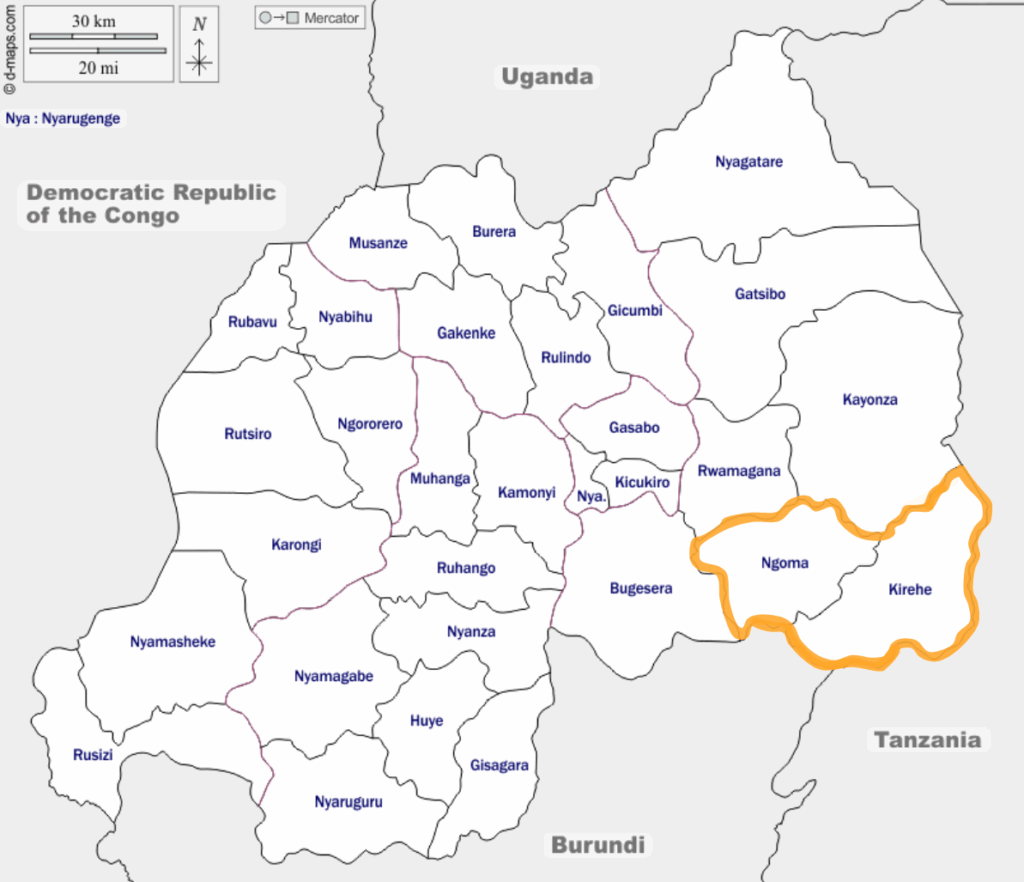
Source: d-maps.com

Empowering Women’s Health: FAST Pilot to be Launched in Bangladesh in December 2025
In December, the FAST pilot screening project will be launched in Bangladesh, building on the Elekta Foundation’s experience with the co-developed and co-designed Mission2027 initiative in Rwanda, which also integrates breast cancer screening. This collaborative effort, resulting from a Memorandum of Understanding with Grameen Kalyan, a pioneering social business established in 1996, aims to screen a total of 20,000 women. Grameen Kalyan is dedicated to delivering affordable, high-quality healthcare to underserved rural communities throughout Bangladesh.
The initial phase of screening will be evaluated at the end of the first quarter of 2026 to inform the development of a structured, population-based mass screening program. The ultimate goal is to eliminate cervical cancer in Bangladesh, in alignment with the WHO global strategy to eradicate this disease that affects women all over the world, especially those in low-resource settings. The partnership between Grameen Kalyan and the Elekta Foundation is poised to drive significant improvements in women’s health by introducing the proven FAST model to a new context.
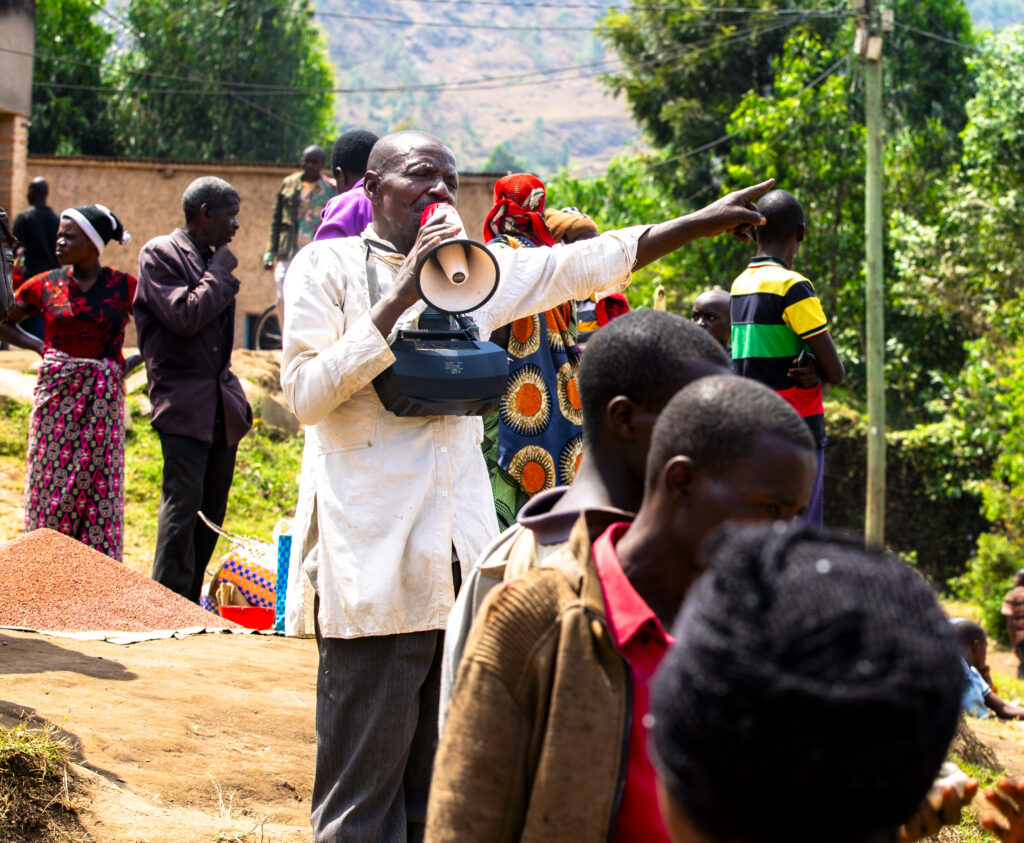
Local community health workers
We train LCHWs in all districts to provide health education, basic care, and support services. They connect people to healthcare, raise awareness about the HPW virus—a sexually transmitted infection—and emphasize the importance of early cancer detection. LCHWs encourage women to get screened and promote overall community well-being. As trusted members of their communities, they build strong relationships and play a vital role in reducing health barriers. Several thousand LCHWs are trained before cervical and breast cancer screening begins in each district.
Nurses and midwifes
Empowering Frontline Health Workers through Task-Shifting
In many low-resource settings, access to specialized healthcare professionals remains limited. To address this challenge and improve early detection of cancer among women, we are implementing a strategic approach known as task-shifting—a model that reallocates specific clinical responsibilities from doctors to trained nurses and midwives.
Through targeted training programs, nurses and midwives are equipped to perform clinical breast examinations and screen for precancerous lesions, significantly expanding the reach of preventive care. This approach not only enhances early detection but also strengthens the role of these frontline health workers within the healthcare system.
Importantly, all task-shifting initiatives are closely supervised and supported by medical doctors, ensuring clinical quality and safety. This collaborative model fosters continuous learning, builds capacity, and elevates the professional standing of nurses and midwives. By integrating them more deeply into cancer care pathways, we are not only optimizing health resources but also reinforcing a more equitable and resilient healthcare workforce.
Task-shifting is more than a practical solution—it’s a commitment to inclusive, sustainable healthcare that recognizes and empowers the vital contributions of nurses and midwives in advancing women’s health.
In the districts we serve, nurses and midwives take on more than clinical roles, they often act as patient navigators, helping individuals overcome barriers to care. They guide patients through screening, diagnosis, and treatment, coordinate referrals, and ensure follow-up. They also provide emotional support, connect patients to financial or social assistance, and visit homes when needed. Through this work, they build trust and bring essential healthcare closer to the people who need it most.
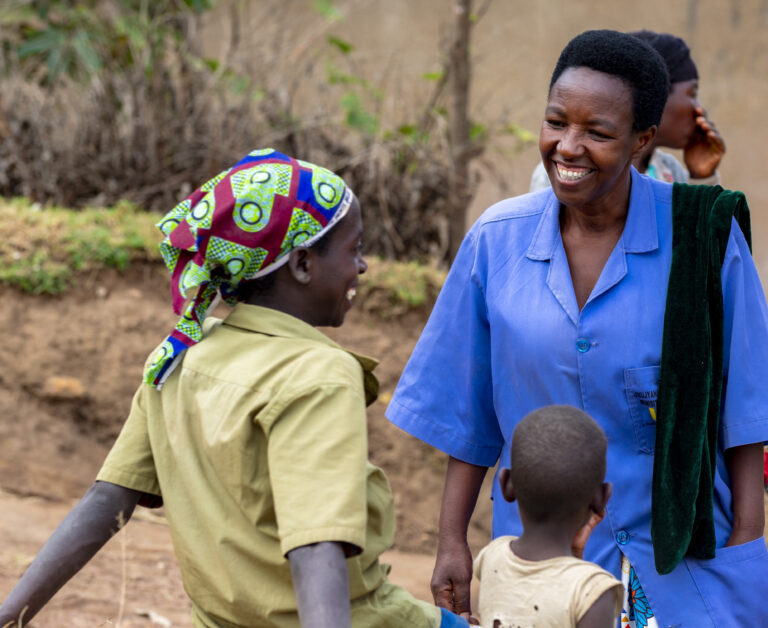
Key Insights from Our Work in Rwanda
Since 2022, our work across districts in Rwanda has shown that,
- Impact relies on a strong network of local health actors. Community Health Workers (CHWs) are vital for mobilization.
- Local screening services improve access and outcomes.
- Patient navigators are essential. They ensure follow-up and link patients from screening to treatment.
- Dedicated data managers are vital among many things to support accurate tracking.
- Nurse and gynecologist trainers strengthen local capacity.
- Comprehensive care that addresses both nutrition and mental health to support full recovery is significant.
Since start 2022
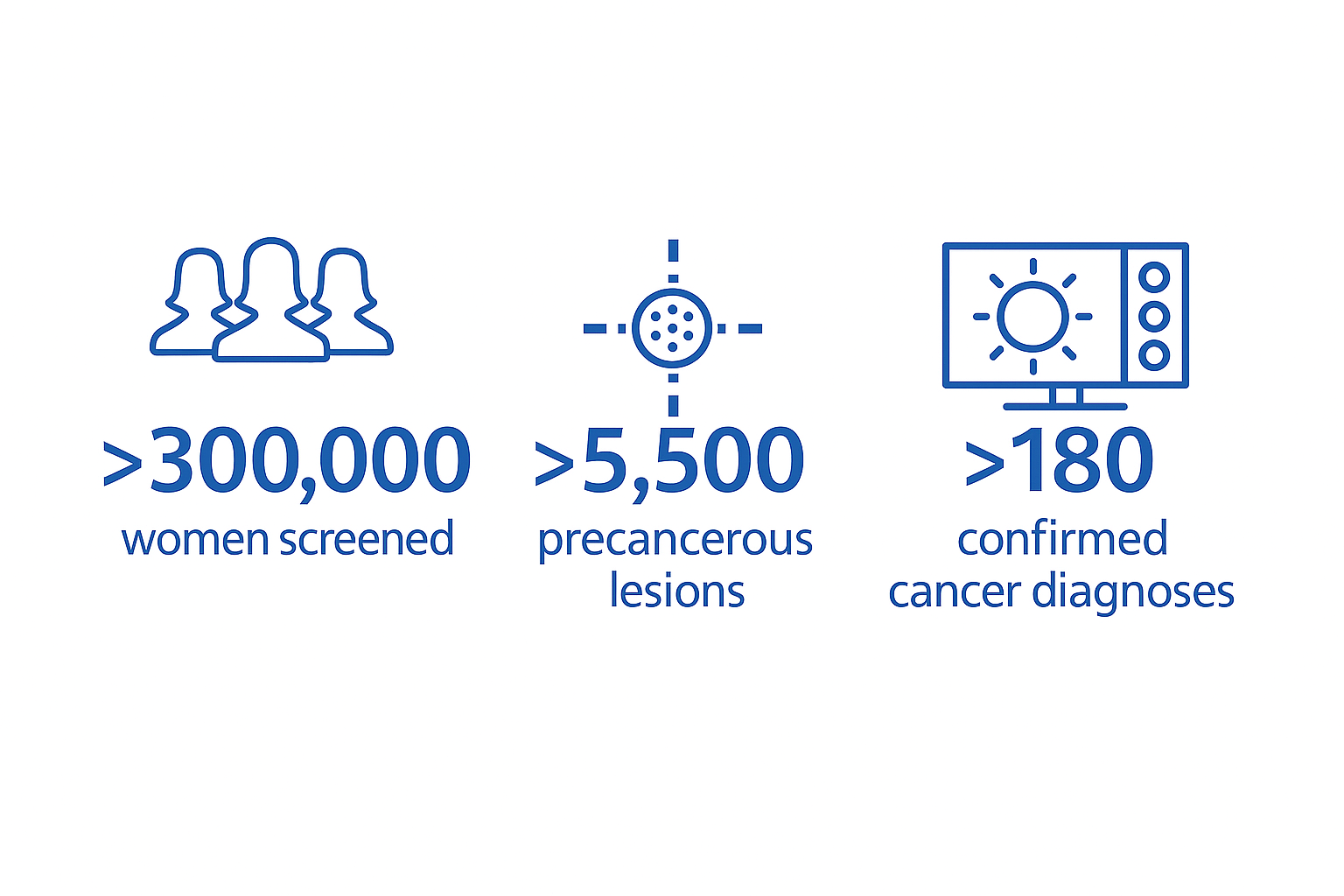
Cervical cancer results
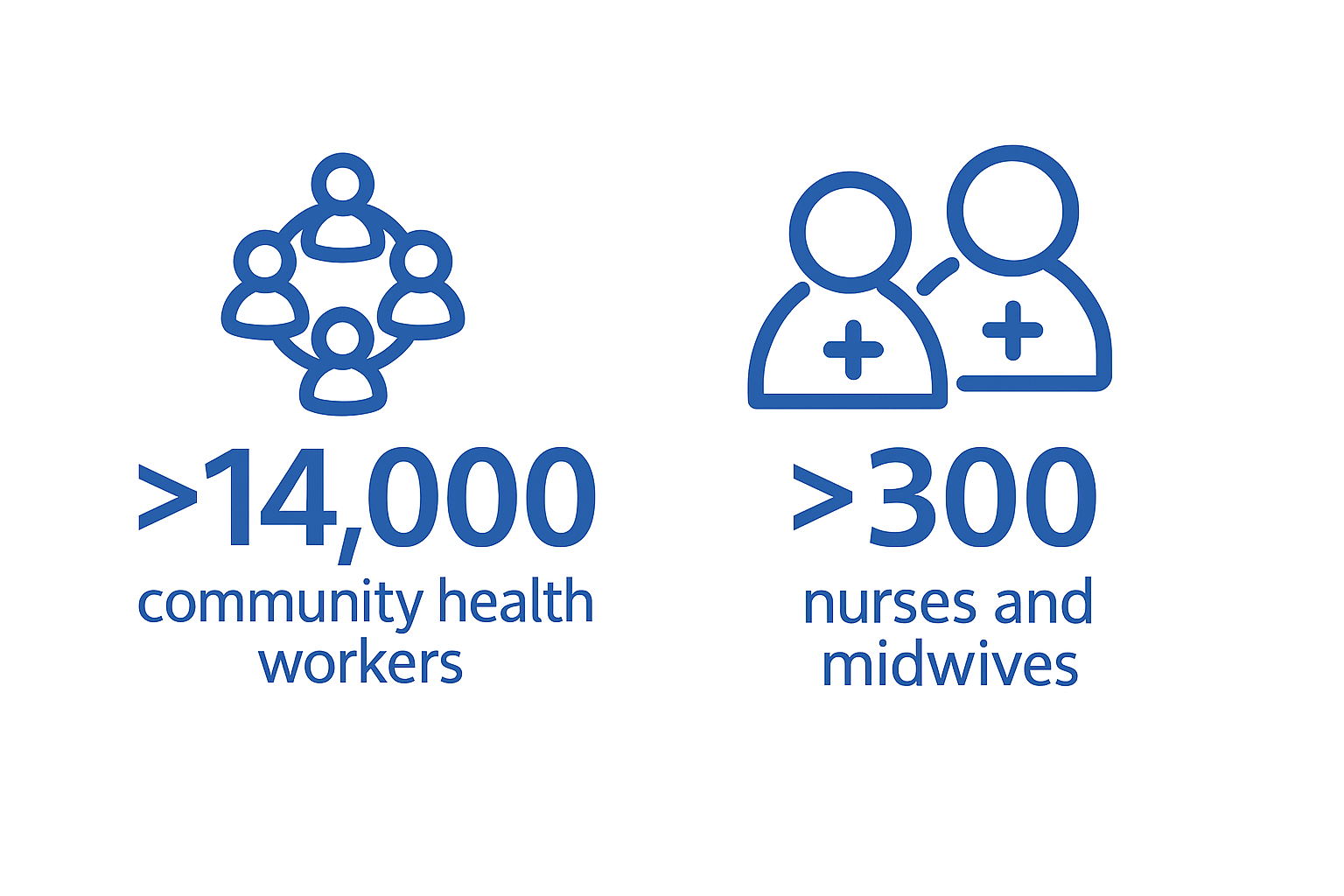
Training and education
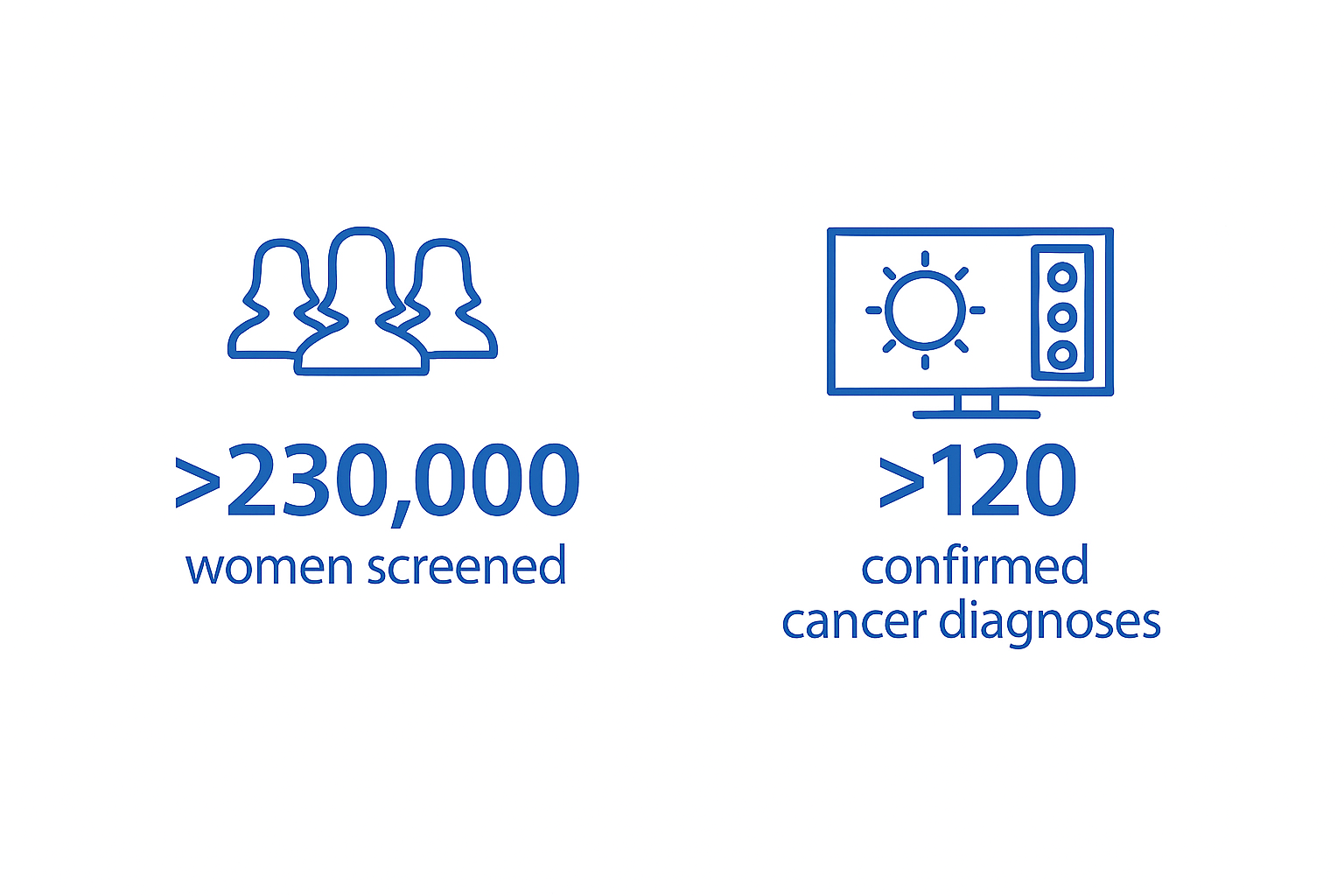
Breast cancer results
Main partners
The Foundation collaborates with key partners that acknowledge the importance of joining forces to tackle cervical cancer:

Rwandan Ministry of Health

Rwanda Biomedical Center

Rwanda Society for Family Health

Clinton Health Access Initiative (CHAI)
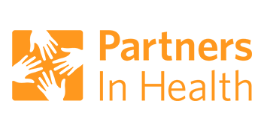
Partners In Health

Gynius Plus AB

Heza Initiative

African Center for Research on End of Life Care

Center of Excellence in Minimally Invasive Surgery

Rayos Contra Cancer
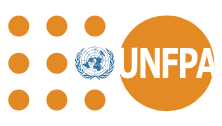
United Nations Population Fund
